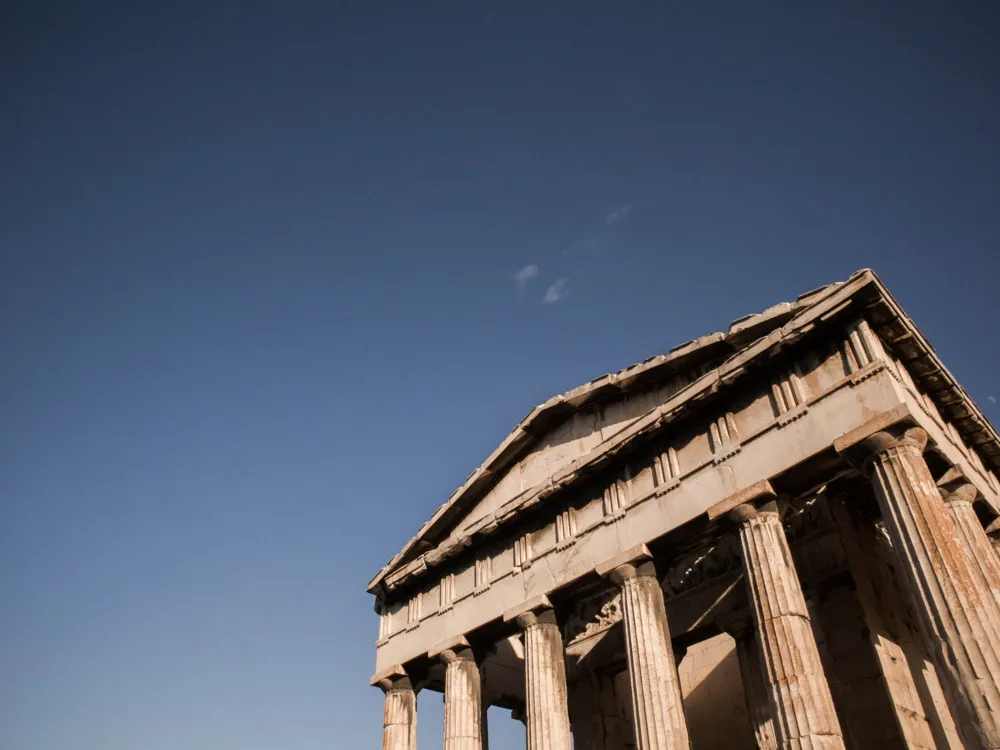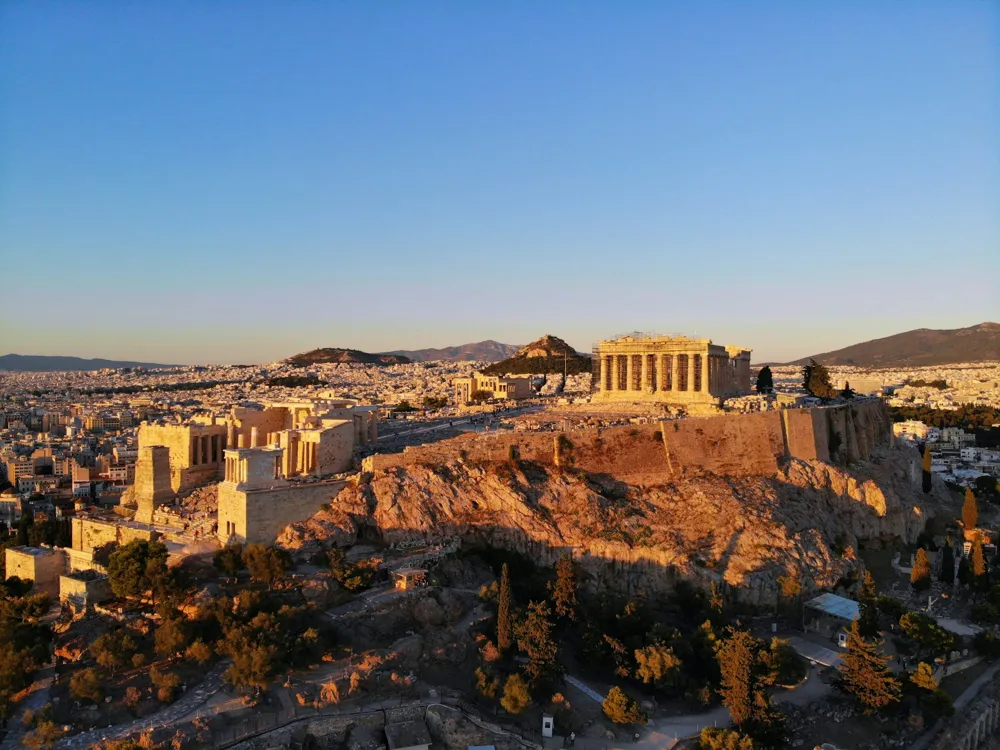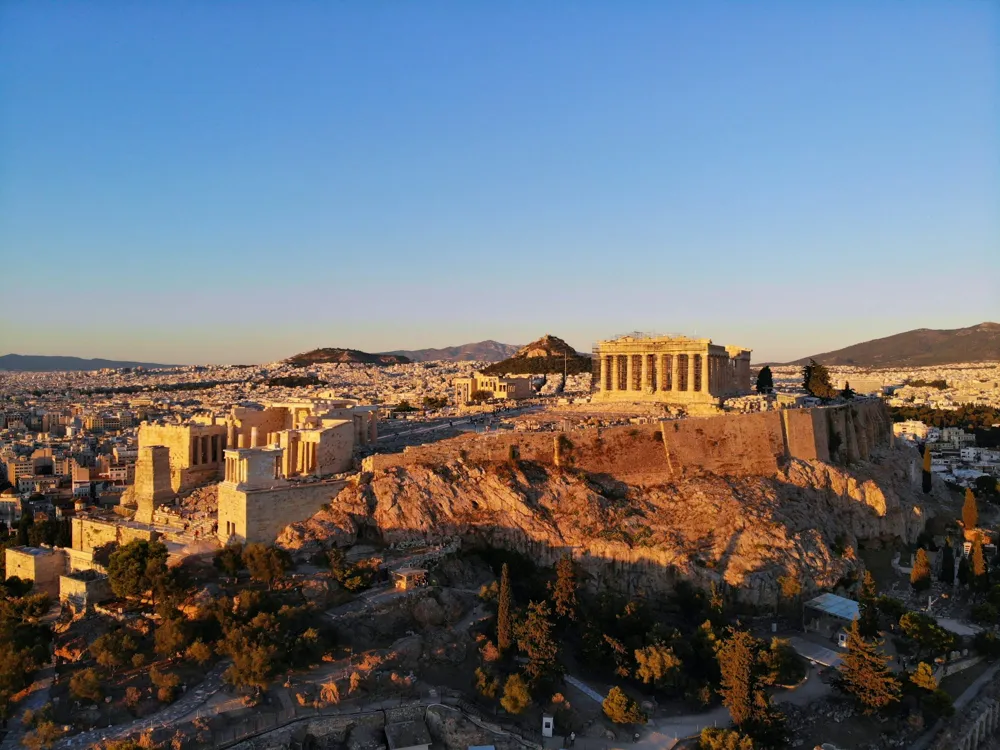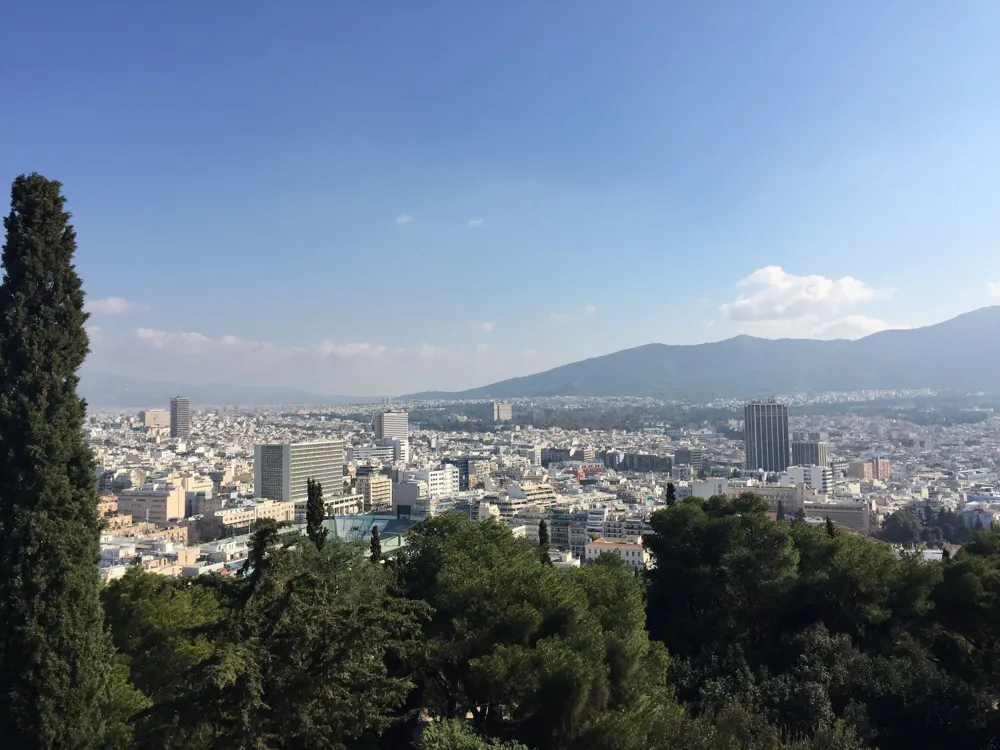Athens, the capital city of Greece, is a remarkable blend of classical antiquity and contemporary dynamism. As one of the world's oldest cities, its recorded history spans over 3,400 years, and its earliest human presence started somewhere between the 11th and 7th millennium BC. Athens is widely referred to as the cradle of Western civilization and the birthplace of democracy, mainly because of its cultural and political impact on the European continent, and in particular for being the birthplace of major philosophers, writers, and politicians of the ancient world. Modern Athens is a bustling metropolis and the economic, financial, industrial, political, and cultural life of Greece. The city's classical era was around the 5th century BC when it was the powerhouse of the ancient world. During this period, its values and civilization acquired a universal significance and classical Athens was perhaps the most important city in the ancient world in terms of its culture and democratic form of government. Today, Athens is a vibrant city that combines modern aspects with its ancient heritage in a unique way. The historic center is an open-air museum, while at the same time, Athens has an active contemporary cultural scene and nightlife. It's a city that never sleeps, and its energy is palpable at every corner, from ancient ruins to modern art galleries. The architecture of Athens is a unique tapestry that weaves together different historical periods. The city's architecture reflects its long, varied history and is punctuated by Roman, Byzantine, Ottoman, and modern influences. However, it is the classical and neoclassical architecture that Athens is most famous for, with many buildings dating back to the 5th century BC. The most iconic symbol of Athens' architectural heritage is the Acropolis, a citadel situated on a rocky outcrop above the city. The Acropolis is home to several ancient buildings of great architectural and historic significance, the most famous being the Parthenon. The Parthenon, a former temple, epitomizes the ancient Greek ideal of beauty and proportion and has influenced architecture worldwide for many centuries. Another significant period in Athens' architectural history is the 19th century when the city underwent major transformations during its modernization. This era introduced neoclassical architecture to Athens, characterized by grandeur and symmetry, inspired by the classical Greek style. Notable examples of this style include the University of Athens, the National Library of Greece, and the Academy of Athens. Contemporary Athenian architecture is a mixture of various styles, with post-war and modern buildings standing alongside neoclassical ones. The cityscape is a blend of low-rise buildings, marble temples, and neoclassical mansions, interspersed with modernist and post-modernist structures. This mix gives Athens its unique architectural character, making it a fascinating city for both architects and historians. The best time to visit Athens is during spring (April to June) or fall (September to November). During these months, the weather is pleasant, and the tourist crowds are smaller. The summer months can be extremely hot, especially in July and August, and are also the peak tourist season. Athens has an efficient public transportation system that includes buses, trams, and a metro system. The metro, in particular, is a convenient and fast way to travel around the city and also offers a glimpse into history with many stations displaying ancient artifacts found during their construction. When visiting historical sites, it's important to respect the cultural heritage. This means no climbing on ancient structures, and being mindful of preservation efforts. Always follow the guidelines set by the site management. While many Greeks in Athens speak English, especially in tourist areas, learning a few basic Greek phrases can be helpful and is greatly appreciated by the locals. Greek cuisine is a must-try when in Athens. Enjoy traditional dishes like moussaka, souvlaki, and Greek salad. Athens also offers a range of international cuisine, catering to all tastes. Athens is accessible by air, sea, and road. The Athens International Airport, Eleftherios Venizelos, is the primary gateway by air and is well-connected to major cities around the world. For those traveling by sea, the Port of Piraeus is one of the largest in Europe and serves ferries from various Greek islands and several international destinations. Road connections to other parts of Greece and neighboring countries are also well-developed, with regular bus services and car rental options. Once in Athens, the city’s extensive public transportation network, which includes buses, trolleys, and a modern metro system, makes it convenient for tourists to explore the city and its surroundings. Read More:Overview of Athens
Architecture of Athens
Tips When Visiting Athens
Best Time to Visit
Getting Around the City
Respect the Cultural Sites
Language and Communication
Local Cuisine
How To Reach Athens
Parthenon
Athens
₹ 25,800 onwards
View athens Packages
Weather :
Tags : Historical Site
Timings : 8:00 AM - 7:30 PM
Entry Fees : Multi-site ticket: EUR 30 (includes Acropolis, Ancient Agora, Hadrian’s Library, the Roman Agora)
Planning a Trip? Ask Your Question
Athens Travel Packages
View All Packages For Athens
Top Hotel Collections for Athens

Private Pool

Luxury Hotels

5-Star Hotels

Pet Friendly
Top Hotels Near Athens
Other Top Ranking Places In Athens
View All Places To Visit In athens
View athens Packages
Weather :
Tags : Historical Site
Timings : 8:00 AM - 7:30 PM
Entry Fees : Multi-site ticket: EUR 30 (includes Acropolis, Ancient Agora, Hadrian’s Library, the Roman Agora)
Planning a Trip? Ask Your Question
Athens Travel Packages
View All Packages For Athens
Top Hotel Collections for Athens

Private Pool

Luxury Hotels

5-Star Hotels

Pet Friendly




















